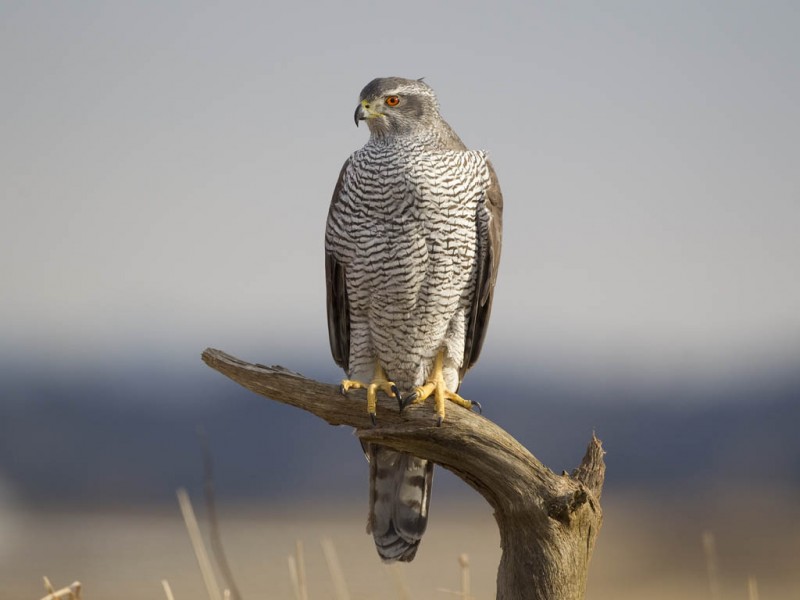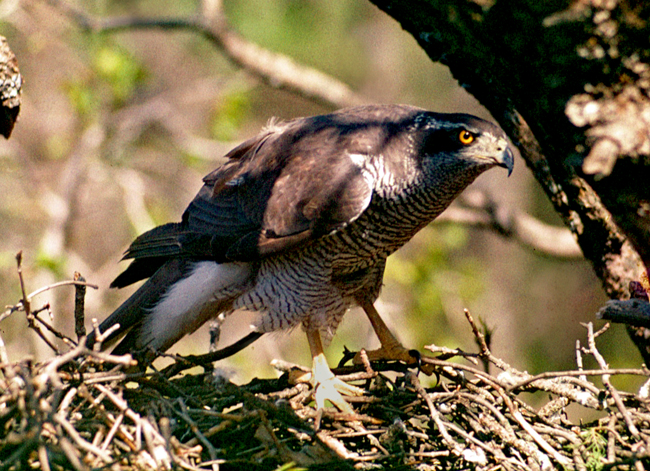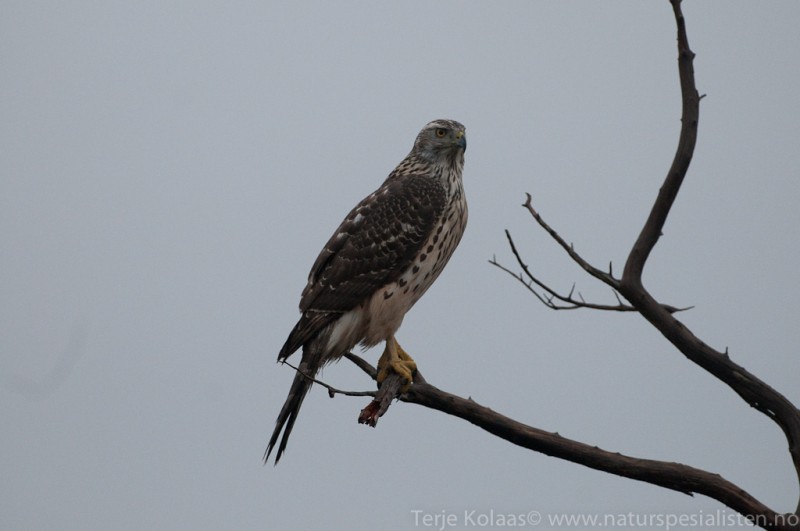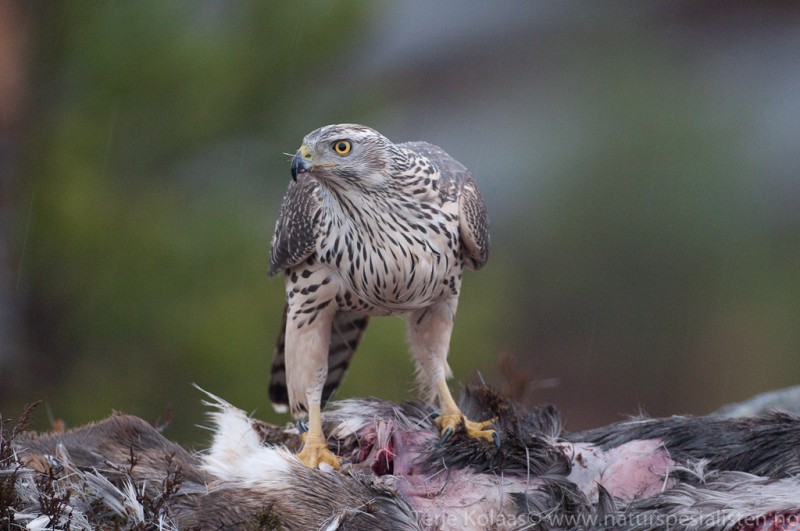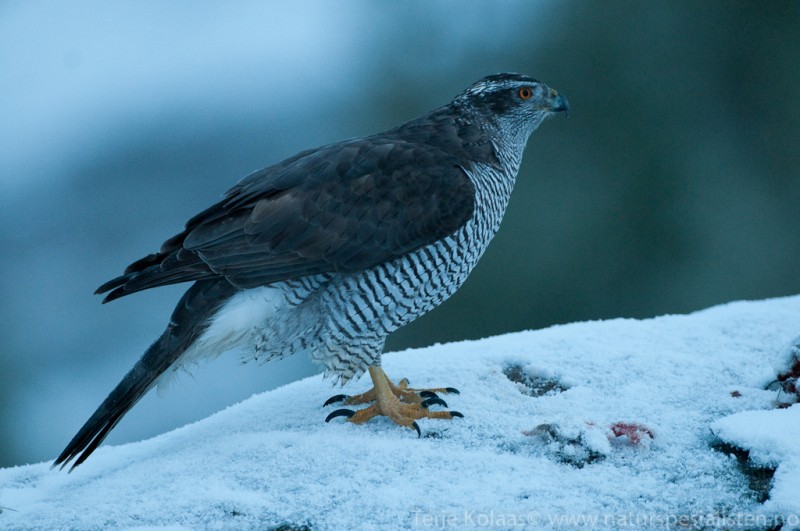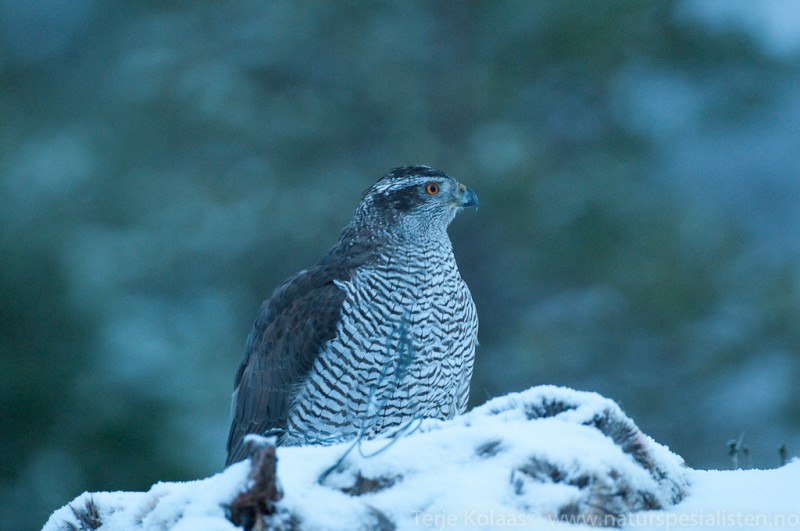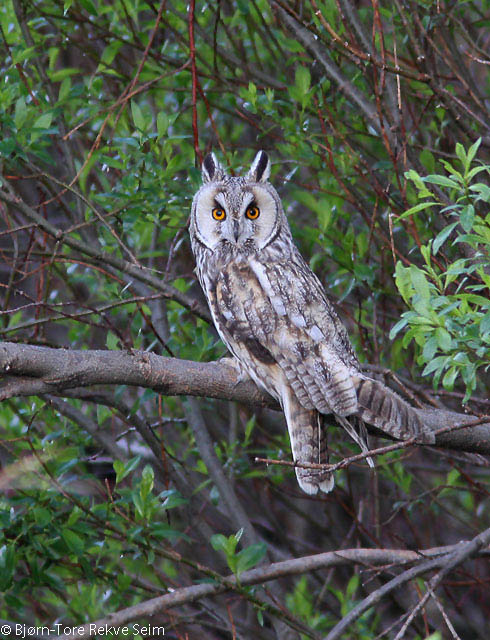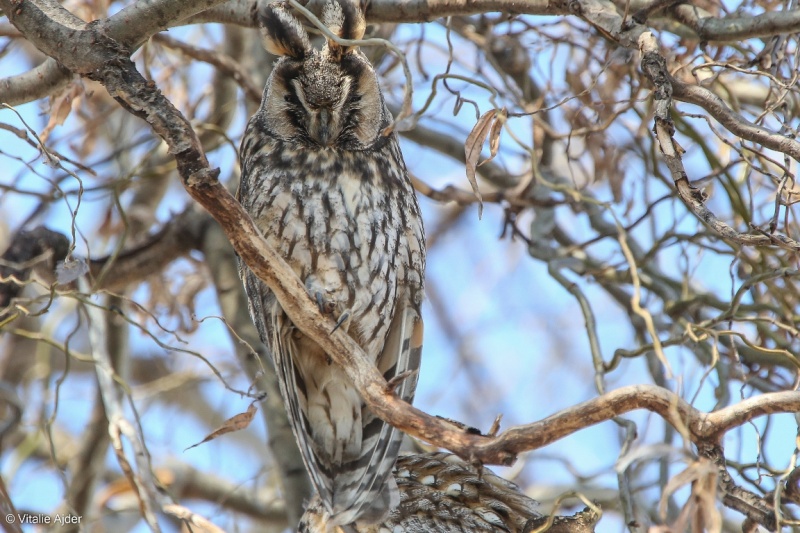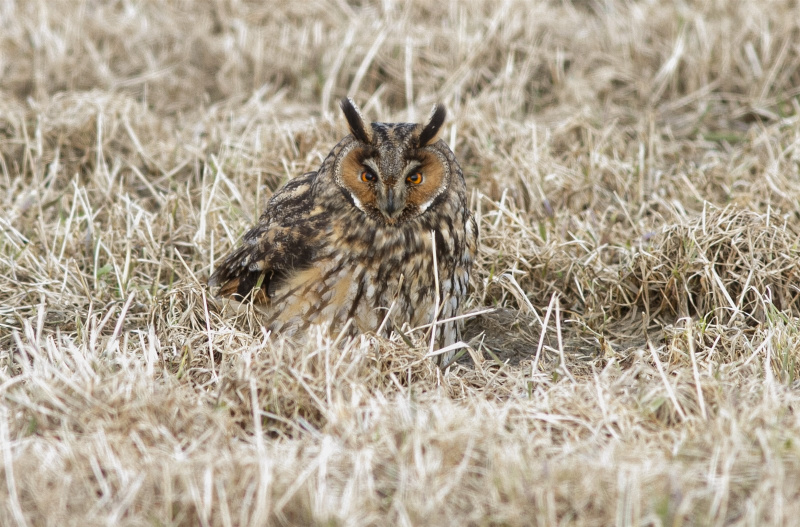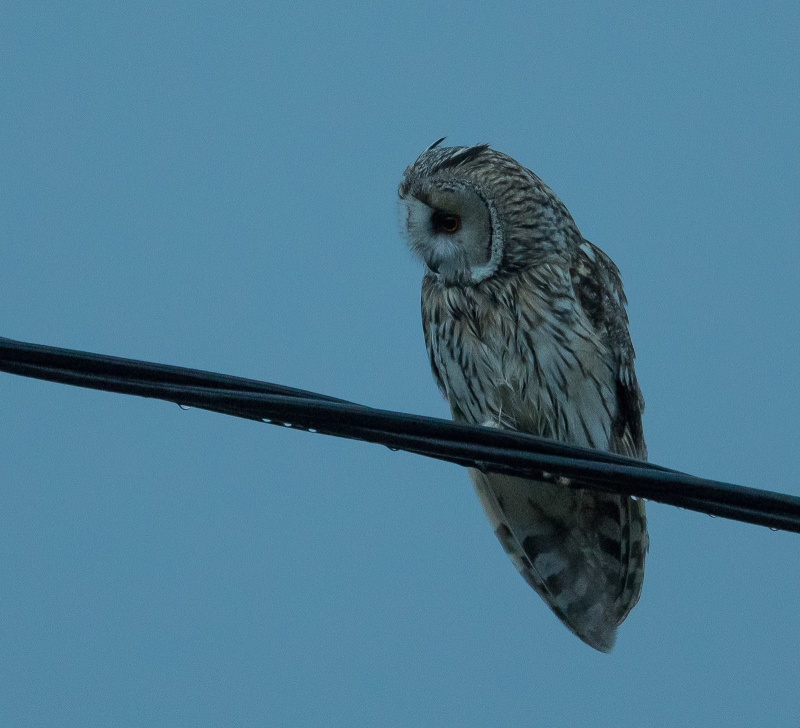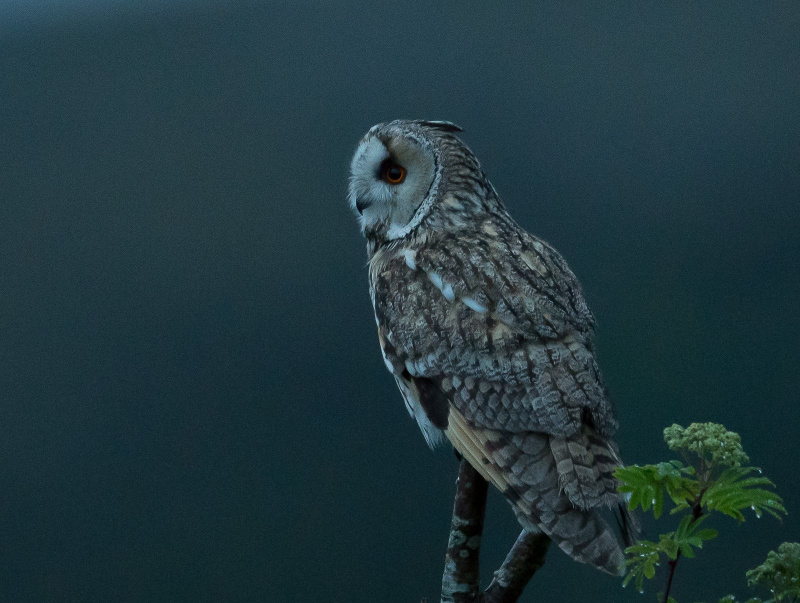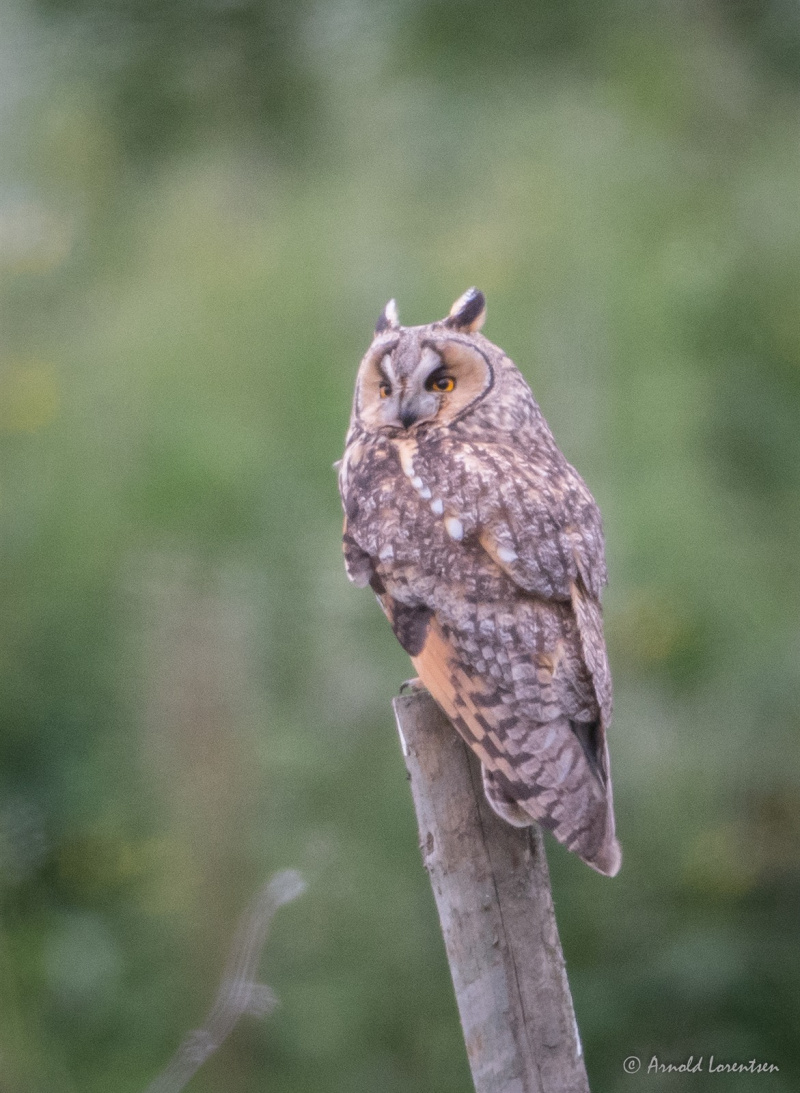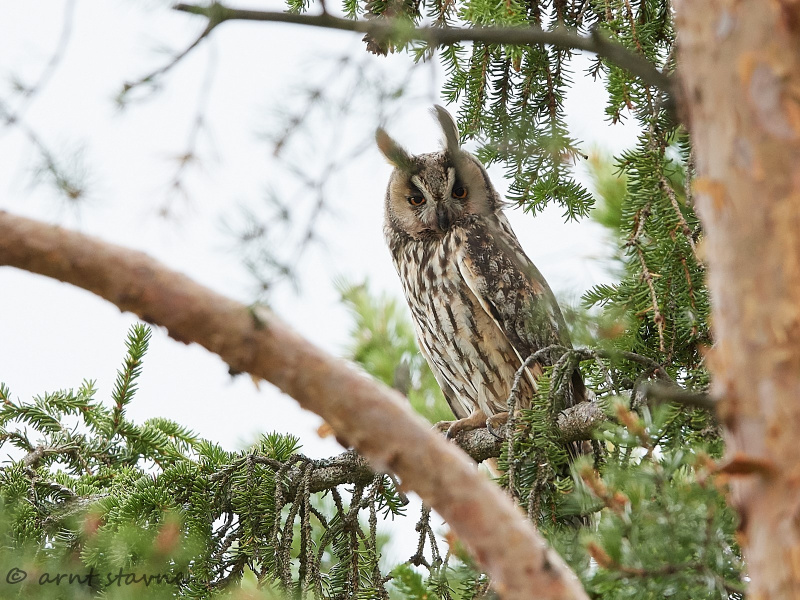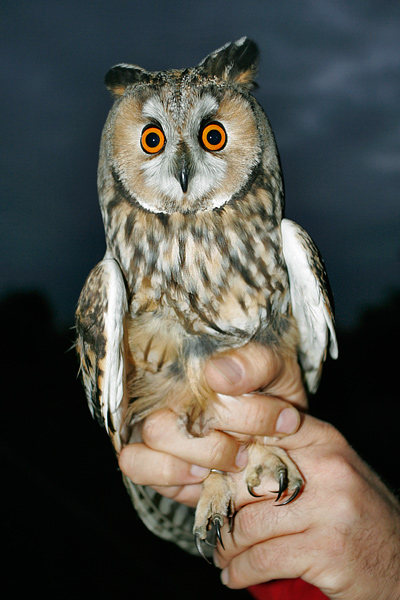Goshawk (Accipiter gentilis)
Long-eared Owl (Asio otus)
Bulky raptor with long tail and short, rounded wings. Small males may be difficult to separate from large Sparrowhawk females. Upperparts grey-brown, and underparts pale and barred or speckled. Male and female quite similar, but female larger. Juveniles browner than adults, with heavily speckled underparts. Supercilium prominent in both sexes. Bulkier belly and broader at base of tail than Sparrowhawk. Deep chest. Longer wings and longer secondaries gives more of a S-shape to trailing edge of wings. Slightly rounded tail-corners visible when soaring. Flight alternates series of wingbeats with short glides without loosing height.
Sound:Series of short "ke-ke-ke-ke-ke". More resonant, both sharper and deeper pitched than similar call of Sparrowhawk, and much slower. Also a wailing "peeeaaaaw"
Alarm call:
Distribution:
Wikipedia: map (se also Xeno-canto below)
Ecology:Birdlife ecology
Links:
Observation.org Latest observations
Image search Flickr NB! May give other species
CCSounds:Recorded by Tomek Tumiel,http://www.xeno-canto.org ,CC license
A medium sized, brown and long-winged owl, with long ear-tufts and deep orange eyes. Only half the size of Eagle Owl. Differs from the more similar Short-eared Owl by darker (orange) eyes, longer ear-tufts and heavily streaked lower belly. In flight, note paler wing-tips (only finely barred, not tipped black).
Sound:Song a series of very deep, monotonous "hooooo"s, quite widely spaced. Uttered about once every 2-3 seconds. Sometimes rises in pitch, but with each "hoo" being constant. Rich repertoire of calls. Other sounds include; a nasal "eeeeeaaa" reminiscent of Collared Dove, nasal mewing and bill clicking.
Song, call:
Distribution:
Wikipedia: map (se also Xeno-canto below)
Ecology:Birdlife ecology
Links:
Observation.org Latest observations
Image search Flickr NB! May give other species
CC
 English
English Albanian
Albanian
 Armenian
Armenian
 Bulgarian
Bulgarian
 Catalan
Catalan
 Croatian
Croatian
 Czech
Czech
 Danish
Danish
 Dutch
Dutch
 Finnish
Finnish
 French
French
 Georgian
Georgian
 German
German
 Greek
Greek
 Hungarian
Hungarian
 Italian
Italian
 Latvian
Latvian
 Lithuanian
Lithuanian
 Macedonian
Macedonian
 Norwegian
Norwegian
 Polish
Polish
 Portuguese
Portuguese
 Romanian
Romanian
 Russian
Russian
 Sami : Lule sami
Sami : Lule sami
 Sami : North sami
Sami : North sami
 Sami : South sami
Sami : South sami
 Scientific names
Scientific names
 Serbian
Serbian
 Spanish
Spanish
 Swedish
Swedish
 Ukrainian
Ukrainian



